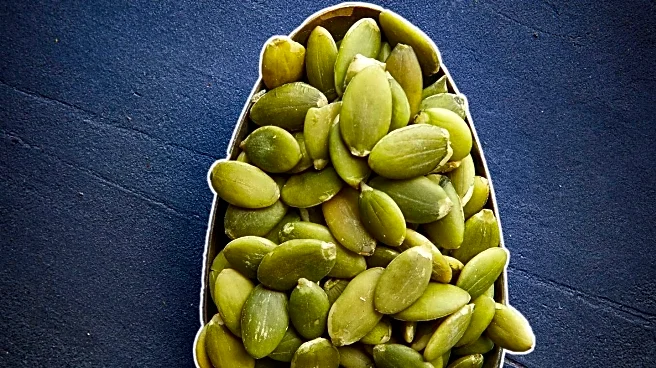What's Happening?
Elizabeth Sanchez, a registered dietitian specializing in digestive health and plant-based diets, emphasizes the nutritional benefits of high-protein seeds such as hemp, chia, and flax. These seeds are rich in omega-3 fatty acids and soluble fiber, making them ideal for individuals following plant-based diets or those avoiding oily fish. Sanchez notes that these seeds not only support muscle maintenance and hormone balance but also help keep individuals fuller for longer. The seeds can be easily incorporated into meals, providing a protein boost without adding much extra volume. Sanchez recommends consuming 1-2 tablespoons of seeds daily to enhance protein, fiber, and healthy fat intake.
Why It's Important?
The growing interest in plant-based diets is driving demand for alternative protein sources, such as high-protein seeds. These seeds offer a sustainable and health-conscious option for individuals seeking to reduce their reliance on animal products. The nutritional benefits of these seeds, including their omega-3 content and fiber, contribute to improved gut health and reduced inflammation. As more people adopt plant-based diets, the market for these seeds is likely to expand, offering opportunities for food producers and retailers to cater to this trend.
What's Next?
As the popularity of plant-based diets continues to rise, food producers may increase their offerings of high-protein seed products. Consumers can expect to see more innovative ways to incorporate these seeds into their diets, such as seed mixes and seed-based snacks. Additionally, ongoing research into the health benefits of these seeds may further validate their role in supporting plant-based nutrition.
Beyond the Headlines
The shift towards plant-based diets reflects broader societal changes in attitudes towards food and health. This trend is part of a larger movement towards sustainable and ethical consumption, which challenges traditional food production methods and encourages the development of new agricultural practices.









